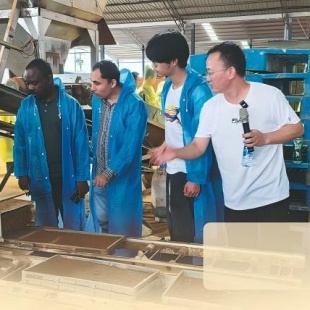Growing ideas across borders
A journey from classroom to countryside reveals how modern farming and cultural exchange are sowing seeds of cooperation.

Seeds of collaboration
As a student specializing in crop genetics and breeding, Nyasulu is focused on developing high-yield, climate-resilient crops. He believes his research can help address food security challenges in Malawi and beyond.
He also sees strong potential for collaboration with Chinese researchers and institutions, sharing knowledge and experiences to accelerate agricultural innovation.
"Key areas might include technology transfer, combining China's advanced technologies with our local resources and specific needs," he said.
Ghafoor expressed similar views. Inspired by China's emphasis on self-reliance and its innovative agricultural strategies, she believes Pakistan can learn from China's example and explore its own course toward agricultural modernization.
She hopes to contribute by developing climate-resilient crop varieties and promoting sustainable farming practices in Pakistan.
"China doesn't follow other countries — it makes its own rules and policies," she observed.
Ghafoor also saw village tourism as a promising path for rural development, hoping that Pakistani villages could attract tourists with their rich cultural heritage and natural beauty.
Meanwhile, Omar envisioned a future where China and Tanzania work together across various agricultural sectors, including large-scale farming, farmer training, and irrigation projects.
Among these cooperative efforts and agricultural initiatives, young people are playing a vital and distinctive role.
"The younger generation, including myself, is essential to driving cultural change and promoting rural revitalization," said Nyasulu. "We bring fresh ideas, energy, technological skills, and the innovative spirit needed for modernization."
Huang emphasized the mutually beneficial relationship between rural development and youth engagement.
"On the one hand, rural revitalization relies on the involvement of young people, as the countryside today faces urgent questions — such as who will farm the land and who will lead its transformation. On the other hand, rural areas provide vast opportunities and a broad platform for young people in this new era to realize their potential," he said.





































